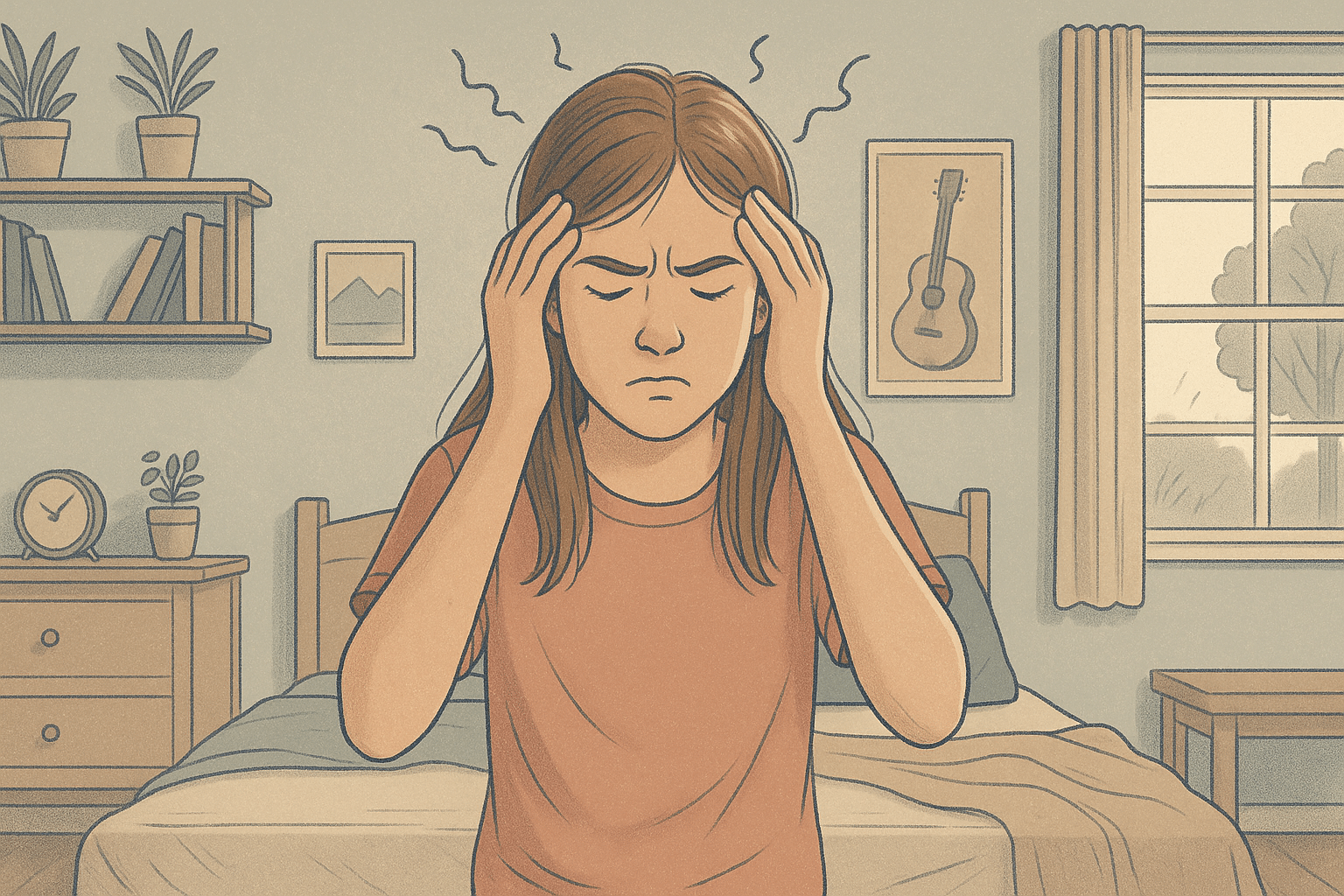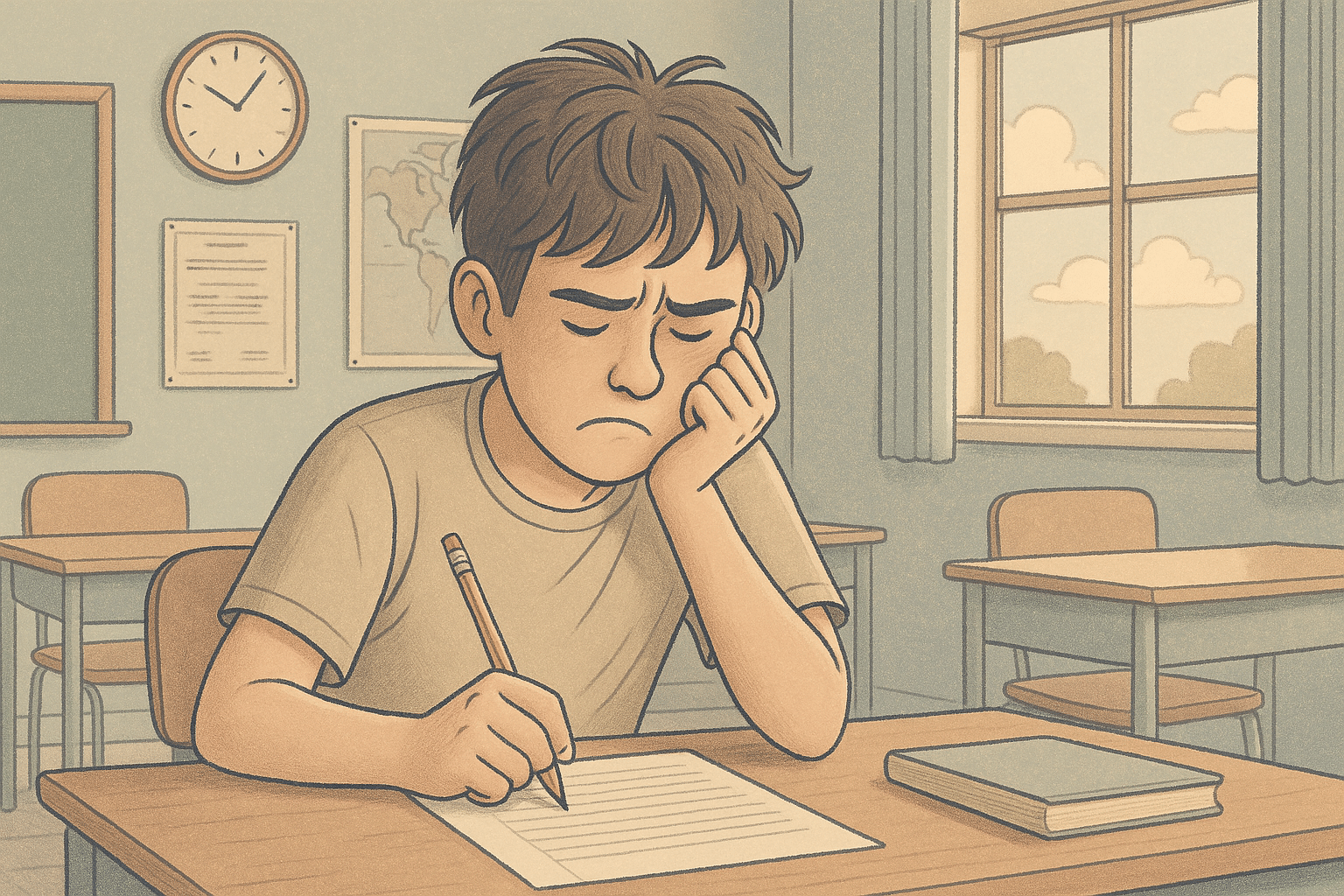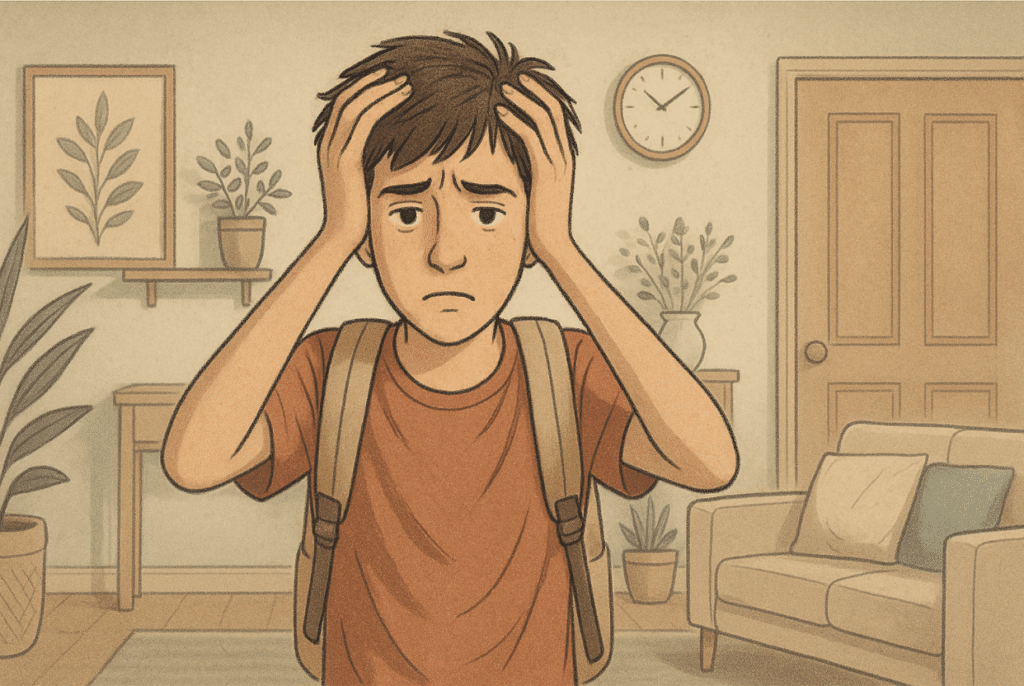Key Takeaways
- Teens experiencing stress often show physical signs like disrupted sleep patterns, unexplained headaches or stomach pains, and significant changes in appetite or energy levels.
- Behavioral changes such as social withdrawal, academic decline, and increased screen time can indicate a teen is struggling with overwhelming stress.
- School-related stress symptoms include homework avoidance, test anxiety, and consistent resistance to attending school.
- Mission Prep Healthcare helps identify when normal teen moodiness becomes a concern by assessing the duration, intensity, and impact of changes; while offering full support for teens and their families.
Teen Stress Crisis
Today’s teenagers face unprecedented pressures. Between rigorous academic expectations, social media comparison, extracurricular commitments, and pandemic-related disruptions to their formative years, it’s no wonder that adolescent stress has reached crisis levels.
National surveys indicate that nearly 45% of teens report feeling stressed “all the time,” with many describing their stress as unmanageable. Without proper support, chronic stress during your formative years can impact brain development and set patterns that continue into adulthood.
Physical Warning Signs of Stress
Sleep Disruptions
While it’s normal for you to shift toward later bedtimes as a teen, stress-related sleep issues go beyond this natural tendency. You might notice you’re having trouble falling asleep, waking frequently during the night, or experiencing nightmares.
Additionally, morning fatigue that doesn’t improve with adequate sleep opportunities can indicate stress is affecting your sleep quality, even if you’re spending sufficient time in bed.
Unexplained Aches

Physical complaints without clear medical causes often signal that stress is manifesting in the body.
Stress-related physical symptoms we commonly see in teens include frequent headaches, persistent stomach pain, muscle tension, and unexplained chest tightness.
These symptoms tend to worsen during high-stress periods like exam weeks or social conflicts and may lead to multiple school absences or doctor visits that yield without a clear diagnosis.
Appetite Changes
Stress significantly impacts eating patterns, often in opposite extremes. Some teens completely lose their appetite when stressed, skipping meals and showing little interest in previously enjoyed foods.
Others turn to food for comfort, developing patterns of stress-eating that may lead to noticeable weight changes. Changes in eating behaviors that persist beyond two weeks warrant attention, especially if accompanied by other stress indicators.
Mission Prep Healthcare specializes in mental health treatment for teens aged 12-17, offering residential and outpatient programs for anxiety, depression, trauma, and mood disorders. Our therapies include CBT, DBT, EMDR, and TMS, tailored to each adolescent’s needs.
With a structured, supportive environment, we integrate academic support and family involvement to promote lasting recovery. Our goal is to help teens build resilience and regain confidence in their future.
Behavioral Red Flags
Social Withdrawal
One of the most concerning stress signals is when you begin to withdraw from friends, family, and activities you once enjoyed. This isn’t the same as the natural evolution of friendships or interests that occurs during adolescence.
Stress-induced withdrawal typically involves avoiding previously enjoyable social situations, declining invitations, and spending excessive time alone in your room. This isolation can create a dangerous cycle where you lose important social support precisely when you need it most.
Academic Decline
Sudden changes in academic performance often signal that you might be struggling with stress. This might manifest as dropping grades, incomplete assignments, or diminished class participation.
Additionally, avoidance behaviors like “forgetting” about assignments, making excuses to stay home from school, or expressing sudden negativity about previously enjoyed subjects often mask anxiety about academic performance or fear of failure rather than laziness.
New Addictive Habits
Stress makes you develop coping mechanisms that can evolve into concerning patterns. These might include excessive gaming, social media use, or risky behaviors.
While experimentation is normal in adolescence, stress can accelerate these behaviors from occasional to compulsive as you seek relief from uncomfortable emotions. The temporary relief these activities provide often creates a dependency cycle that compounds stress in the long run.
Mood Swings

While mood variability is expected during adolescence due to hormonal changes and brain development, stress can amplify these fluctuations beyond typical levels.
Stressed teens often demonstrate heightened irritability, emotional fragility, or uncharacteristic anger outbursts.
We find that boys particularly tend to express emotional distress through irritability rather than sadness, which can be misinterpreted as behavioral problems rather than signs of suffering. These mood disturbances typically intensify during high-pressure periods and may improve temporarily during vacations or breaks.
Hidden Emotional Indicators
Excessive Worry
Persistent and excessive worry about the future, performance, or problems that seem disproportionate to your actual impact is a hallmark of stress.
This worry pattern can manifest as constant reassurance-seeking, difficulty making decisions, or repeatedly asking the same anxiety-based questions.
Negative Self-Talk
The internal dialogue of a stressed teen often becomes harshly self-critical. At Mission Prep Healthcare, we hear teens express beliefs that they’re “not good enough,” “a failure,” or that “everyone else is doing better.”
This negative self-perception frequently manifests in comments that reveal low self-esteem, perfectionism, or impostor syndrome. Even high-achieving teens can develop these negative thought patterns, sometimes becoming their own harshest critics in ways that perpetuate rather than alleviate stress.
Loss of Interest
When stress becomes overwhelming, teens often lose interest and enjoyment in activities that previously brought them pleasure. This phenomenon, called anhedonia, is particularly concerning as it removes important sources of positive emotion and stress relief from your life.
You might notice you no longer pick up your instrument to play, or you create excuses to skip practice. This diminished capacity for pleasure often indicates that stress has progressed to a point where professional intervention may be needed.
When School Stress Shows
Homework Avoidance
A sudden reluctance to complete schoolwork often signals that you feel overwhelmed by academic demands.
This avoidance typically goes beyond normal procrastination; you might hide assignments, lie about due dates, or become emotionally dysregulated when homework is mentioned. This often leads to poor academic performance, which increases stress more.
Test Anxiety

The pressure to perform well on exams can trigger intense stress and anxiety in teenagers.
Beyond normal pre-test jitters, test anxiety manifests as physical symptoms like nausea, headaches, or panic attacks in the days leading up to assessments.
Some teens develop elaborate avoidance strategies, including last-minute illnesses on test days or refusal to review grades afterward. If your test performance consistently fails to reflect your knowledge or if your physical complaints routinely coincide with exams, test anxiety may be the underlying cause.
Morning Resistance
The daily struggle to get to school can indicate that academic or social stressors have become overwhelming.
While occasional reluctance is normal, persistent patterns of morning complaints, tardiness, or emotional outbursts before school suggest something more serious.
When To Seek Help
At Mission Prep, we recommend seeking professional help when stress symptoms persist for more than two weeks, interfere with daily functioning, or cause significant distress.
Multiple signs appearing simultaneously, dramatic personality changes, or any of the warning signs we discussed earlier should prompt immediate professional evaluation.
The good news is that teens respond well to appropriate interventions, especially when support comes early. The right approach depends on your specific situation, but early intervention consistently leads to better outcomes than waiting until crisis points.
Mission Prep’s Approach to Teen Stress & Recovery
At Mission Prep Healthcare, we specialize in distinguishing between typical teenage adjustment challenges and concerning stress patterns that require intervention.
Our comprehensive approach begins with a thorough assessment to understand the unique combination of academic pressures, social dynamics, family factors, and developmental challenges affecting each teen.

We create psychologically safe environments where adolescents can explore their stress experiences without judgment while developing practical coping strategies and emotional regulation skills.
Our multidisciplinary team works collaboratively with families, recognizing that effective teen stress treatment requires addressing both individual symptoms and family communication patterns that either support or inadvertently intensify stress.
Through evidence-based therapeutic approaches and family involvement, we help teens transform overwhelming stress into manageable challenges while building resilience skills that serve you throughout life. When you recognize these stress signs, professional support can prevent escalation and provide the foundation for healthier emotional development.
Frequently Asked Questions (FAQ)
How can I tell normal teen moodiness from stress?
The key differences between typical adolescent mood fluctuations and stress-related concerns lie in duration, intensity, and impact.
Normal teen moodiness tends to be situational and relatively brief, a bad day or temporary frustration that resolves quickly. Stress-related symptoms persist over time, typically lasting two weeks or longer without significant improvement.
What’s the biggest cause of teen stress today?
While each teen’s experience is unique, our work at Mission Prep reveals that academic pressure consistently ranks among the top stressors, closely followed by social concerns and uncertainty about the future.
They’re coming of age during times of significant societal upheaval, climate concerns, economic uncertainty, and rapid technological change; all while their brains are still developing the capacity to process and contextualize these pressures.
Can stress in teens lead to long-term health problems?
Research increasingly confirms that chronic, unmanaged stress during adolescence can have lasting physical and psychological impacts.
This is because sustained stress hormone elevation during this critical developmental period can affect brain architecture, immune function, and even gene expression.
Teens who experience prolonged stress are at higher risk for developing anxiety disorders, depression, and unhealthy coping patterns that can persist into adulthood.
How quickly can teen stress escalate to crisis?
The progression from manageable stress to crisis varies significantly between individuals and situations. Some teens demonstrate remarkable resilience in the face of significant stressors, while others may experience rapid escalation with seemingly minor triggers.
How does Mission Prep Healthcare approach teen stress differently from traditional therapy?
At Mission Prep Healthcare, we understand that teen stress looks different for every adolescent, which is why we provide comprehensive assessments and personalized treatment plans.
Unlike traditional therapy that may focus only on symptoms, we explore the full picture—academic demands, social pressures, family dynamics, and developmental factors—all of which shape a teen’s stress experience.
Our multidisciplinary team creates a safe space for teens to express their emotions while equipping them with practical coping tools and resilience skills.















